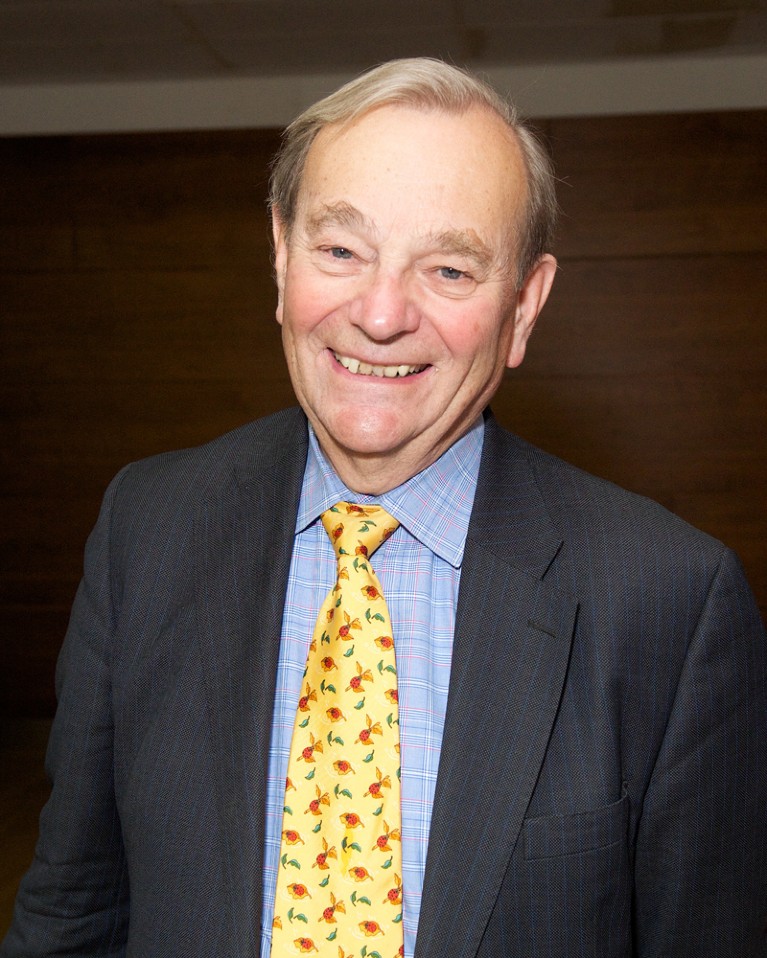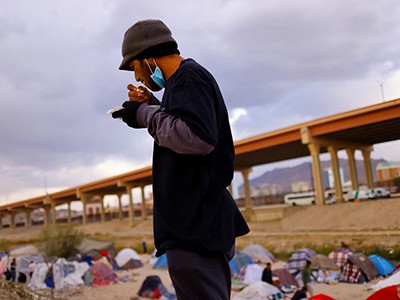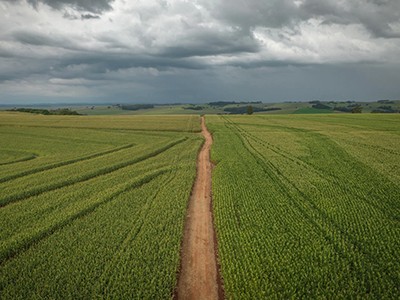
Credit: Imperial College London
Gordon Conway was an inspirational interdisciplinary scientist who was passionate about agriculture and sustainability long before they were fashionable topics. Throughout his career, he worked to achieve sustainable agricultural development, improve food security and reduce poverty worldwide. He was one of the designers of the sustainable livelihoods approach — a framework for development that paid close attention to local farming practices by listening to and learning from farmers. This approach has since been embraced by many development organizations.
His influential 1997 book The Doubly Green Revolution proposed that it is possible to combine new and traditional technologies to improve productivity and support farmers’ livelihoods in a way that is sustainable, without damaging the environment. Although his unerring faith in technological solutions made some of us uneasy, Gordon’s commitment to realizing the benefits of technology — including tools developed by farmers themselves — could not be doubted. Some of the most striking sections of the book describe small-scale farms, including in Java and western Kenya, where farmers achieved high yields by growing several crops in a small space.
Born in Birmingham, UK, Gordon was enthused from an early age by the natural world. He was fascinated by insects, especially how to manage pests without the use of harmful chemicals. He did a bachelor’s degree in ecology at the University College of North Wales in Bangor, UK, and obtained diplomas in agricultural science and tropical agriculture from the University of Cambridge, UK, and the University of the West Indies in Trinidad (now Trinidad and Tobago), respectively. He went on to work in North Borneo (now Sabah in Malaysia) on integrated pest management.
On North Borneo’s cocoa farms, insects were causing widespread defoliation. After releasing parasitic wasps, the natural enemies of the pests, the cocoa plants thrived, reducing the need for pesticides. Gordon used this experience in his studies at the University of California, Davis: his 1969 PhD thesis in systems ecology focused on understanding insect reproduction and the implications for pest management.
What scientists need to do to accelerate progress on the SDGs
Subsequently, at Imperial College London, he worked with leading ecologists — members of the ‘Silwood circle’, including Bob May, Roy Anderson and Richard Southwood — contributing an applied perspective. In 1976, Imperial established the Centre for Environmental Technology with Conway as its director. The following year, the centre launched its multidisciplinary master’s course in environmental technology, producing many graduates — myself included — who were interested in environmental issues. In 1986, he established the sustainable agriculture programme at the International Institute for Environment and Development (IIED), an independent research and policy organization in London.
The sustainability of rural development became central to his work as the Ford Foundation’s representative in New Delhi from 1988 to 1992. Together with Robert Chambers at the Institute of Development Studies (IDS) of the University of Sussex in Falmer, near Brighton, UK, he pioneered research approaches in which farmers were active participants and that were rooted in his concept of agroecosystem analysis. A key feature of this work was the use of participatory diagramming — an interviewing technique in which participants draw diagrams to aid understanding — to explore complex systems. I remember Gordon and Robert returning from a visit to Wollo in northern Ethiopia in 1988, full of excitement about the lessons they had learnt from farmers, such as how soil and water were captured in hillside gullies to create productive micro-plots in a harsh environment. These practical field methodologies went on to revolutionize rural development practices.
In 1992, Conway and Chambers published an IDS discussion paper called Sustainable rural livelihoods. This paper made the case for enhancing people’s capacities, capabilities and resources so they could maintain sustainable livelihoods and cope with stresses and shocks, such as droughts, recessions, diseases or conflicts. Crucially, such livelihoods need to be sustainable across generations, without undermining the natural resources on which they rely. The livelihoods approach has since become central to debates about sustainable development. It was fundamental to the vision of the UK Department for International Development (DFID), established in 1997 under the ministerial leadership of Clare Short, with whom Gordon worked closely.
Genetic modification can improve crop yields — but stop overselling it
Translating research experiences into action was central to Gordon’s mission. He was vice-chancellor of the University of Sussex between 1992 and 1998. As president of the Rockefeller Foundation in New York City from 1998 to 2004, he supported important programmes, including international HIV/AIDS initiatives. From 2005 to 2009, he was chief scientific adviser at DFID. In 2009, he set up the Agriculture for Impact advocacy initiative at Imperial, which provided the base for convening the Malabo Montpellier Panel — a global network of researchers, practitioners and policymakers advocating for agricultural development. As its first chair, he made the case for increased investment in agriculture, especially in Africa. His commitment to understanding, collaboration and justice extended to his chairing of the Runnymede Trust Commission on British Muslims and Islamophobia, whose prescient 1997 report, Islamophobia: A Challenge for Us All, is well worth reading more than 25 years later.
Gordon was an amazing mentor. He seemed to know everyone and was a brilliant networker. He would always involve and listen to early-stage researchers. Despite his grand positions and an array of titles and awards — including a knighthood in 2005 — he was always accessible, interested and supportive, and maintained his commitment to change through interdisciplinary research and participatory engagement around the world.

 What scientists need to do to accelerate progress on the SDGs
What scientists need to do to accelerate progress on the SDGs
 Genetic modification can improve crop yields — but stop overselling it
Genetic modification can improve crop yields — but stop overselling it
 How we set our lab on an environmentally sustainable path
How we set our lab on an environmentally sustainable path
 Millions of jobs in food production are disappearing — a change in mindset would help to keep them
Millions of jobs in food production are disappearing — a change in mindset would help to keep them
 M. S. Swaminathan (1925–2023), leader of India’s ‘green revolution’
M. S. Swaminathan (1925–2023), leader of India’s ‘green revolution’
 Melaku Worede, crop genetics leader (1936–2023)
Melaku Worede, crop genetics leader (1936–2023)




